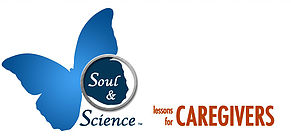WEB MATERIALS

Web Articles
Where am I? Music therapy applied to coma patients
- D Aldridge, D Gustorff
- Journal of the Royal
- 1990 – journals.sagepub.com
… idea of what the patient was like as a person. On contacting the comatose patient she would
say who she was, that she would sing for the patient in the tempo of his or her pulse and the …
The Process and the Meaning of Hope for Family Members of Traumatic Coma Patients in Intensive Care
- Sofie T. L. Verhaeghe
- Florence J. van Zuuren
- Tom Defloor
First Published July 1, 2007 Research Article Find in PubMed
In this study, the authors examined the process that family members go through when they are confronted with traumatic coma. They conducted 24 semistructured interviews with 22 family members of 16 coma patients and analyzed the data using the constant comparative method as proposed by grounded theory. Hope was the most prominent theme. It can be described as keeping a possible positive outcome in mind in an uncertain situation, knowing that this outcome is unlikely to happen. Hope was found to evolve stepwise up and down, dependent on further events and information: big steps at first, smaller later on. Hope helps family members to keep going and to manage care for the patient and for each other. Family members were found to protect themselves against false or unjustified hope by seeking valid information. They alternate their moments of despair, and in their interactions they respect each other’s hope.
https://journals.sagepub.com/doi/abs/10.1177/1049732307303242
‘It’s the hearing that is last to go’: a case of traumatic head injury
- Kate Tapson
- Wanda Sierotowicz
- Di Marks-Maran
- Trish Morris Thompson
Published Online:10 Mar 2015
This article explores the literature related to acquired brain injury (ABI) and is followed by a case study of one patient with ABI, which reflects how the evidence, when implemented by a team of health professionals, can have a positive impact on recovery. Gregor is a middle-aged Polish man who suffered traumatic ABI when knocked down by a car. He spent a number of years in a specialist neurosurgical unit, then a rehabilitation unit, and for the past several years has been cared for in a care home. For most of this time he was in a coma. He began to come out of his coma and during his time in the care home received intensive physiotherapy and speech therapy. At the time of his brain injury Gregor could speak no English yet years later, when he began to regain consciousness, he was able to speak and understand English, a fact that might be attributed in part to 6 years of nurses talking to him in English as part of caring for him. Nurses are always told that hearing is the last of the senses to be lost when a person is unconscious or has a brain injury (Sisson, 1990). The case study presented in this article demonstrates the potential power of talking to a patient when providing care, even when that patient is in a coma, and the impact this may have had on Gregor. It also demonstrates the importance of the need for evidence-based neuro-rehabilitation, including multi-professional working by a team of specialist physiotherapists, nurses, speech therapists, continence specialist nurses, and nutritionists.
https://www.magonlinelibrary.com/doi/abs/10.12968/bjon.2015.24.5.277
